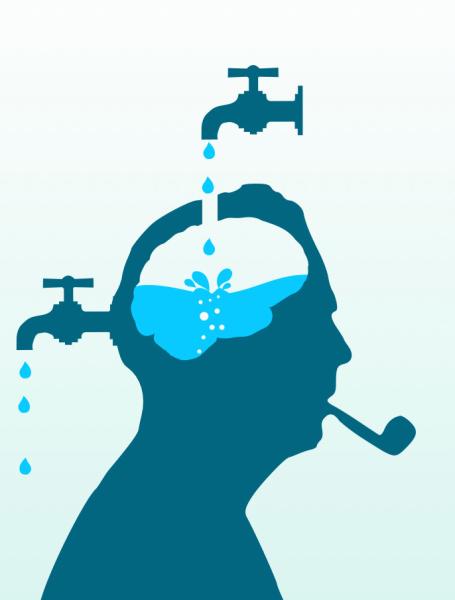Often, the act of forgetting takes on a bad connotation – ranging from less problematic to disastrous. Consider the marital strife created from “I forgot our anniversary.” “I’m sorry” doesn’t tend to cut it with such a meaningful event, yet this apology might be more forgivable for a missed appointment. Such memory lapses can be early warning signs of a devastating disease like Alzheimer’s. But, and this may at first glance seem counterintuitive, the capacity to forget provides a survival advantage - especially in its ability to assuage suffering.
Forgetting is a very important component to the value of memory.
Time and again, I would round at the hospital on the labor and delivery ward encountering first-time parents and their just delivered precious baby. Often war-weary in their most vulnerable of moments, I would internally chuckle as I would ask the newbies, “So, when’s the next one coming?” It never failed to get a laugh and the facial expressions were always worth capturing. Every time the refrain was rapidly reflexive, “Are you kidding? This is it. I am not doing this again.”
But, I knew in roughly two years when the intensity of the thirty-six-hour labor had faded, and the experience was framed as more of a heartwarming family tale those parents would be inevitably right back in the hospital with their second born. And my standard “Oh, but I thought you were done, never again” would be met with “Nah, it wasn’t so bad. We never said it was rough.”
And let’s not forget the power of the cuteness that facilitates the perpetuation of humanity. It is a formidable force.
With the passage of time, life happens. Loves and losses shape our evolving perspective. Sprinkle in some nostalgia and the thought of making memories down the line and the urge for a sibling for the baby to share it with overpowers -- thereby dissipating the memory of the pain to an afterthought.
You see, our adaptability often stems from a vast capacity to compartmentalize memory, then abandon it to wash away suffering. Think about the many social slights or even heartaches we encounter that are hurtful and unnerving. Yet, the most resilient of us go on to forge new friendships and fall in love again.
Forgetting is often invaluable in moving past physical and emotional pain. So, while it is good to remember so as not to repeat the same mistakes, our natural, protective disregard for the torment endured can be quite an extraordinary gift.



